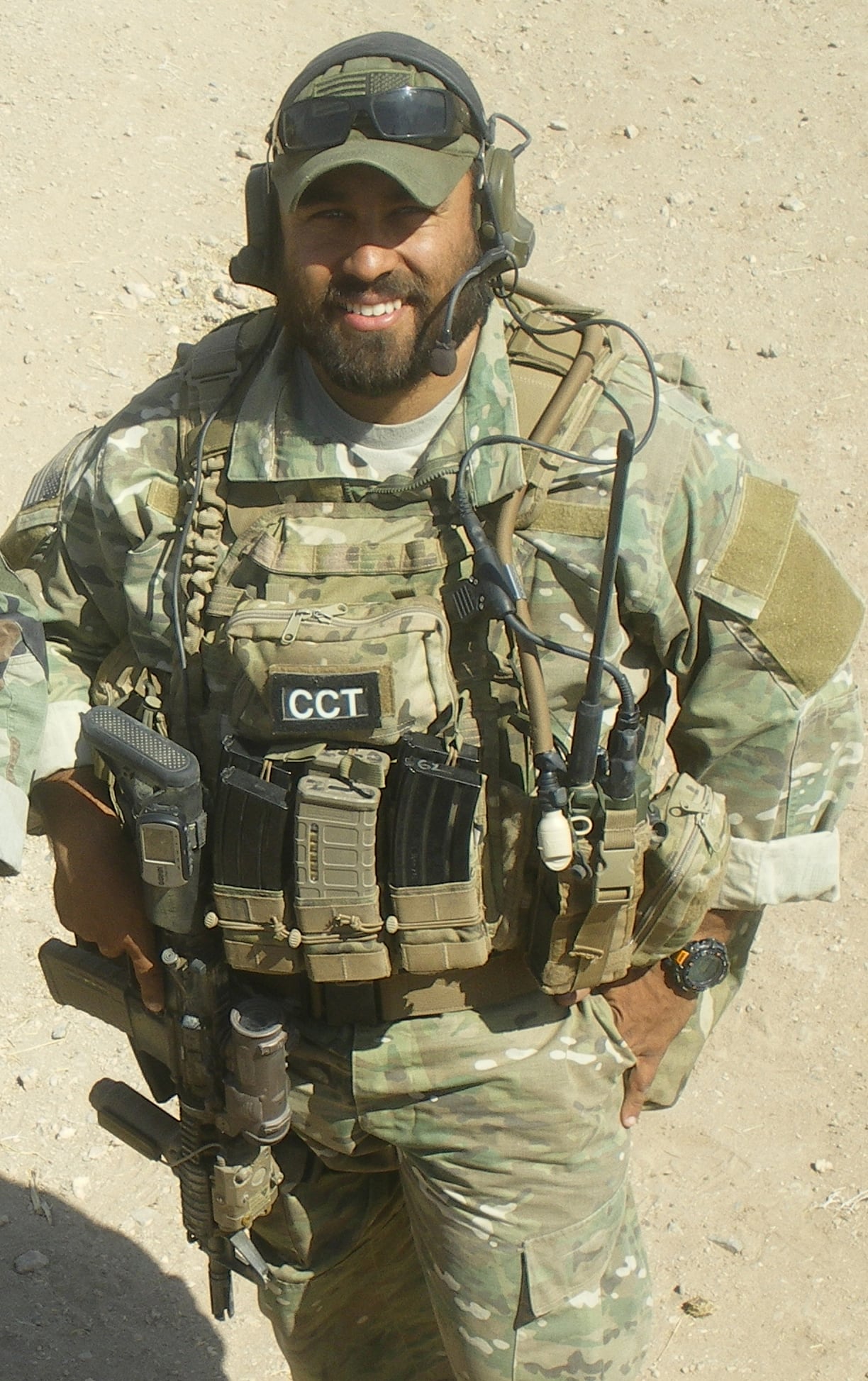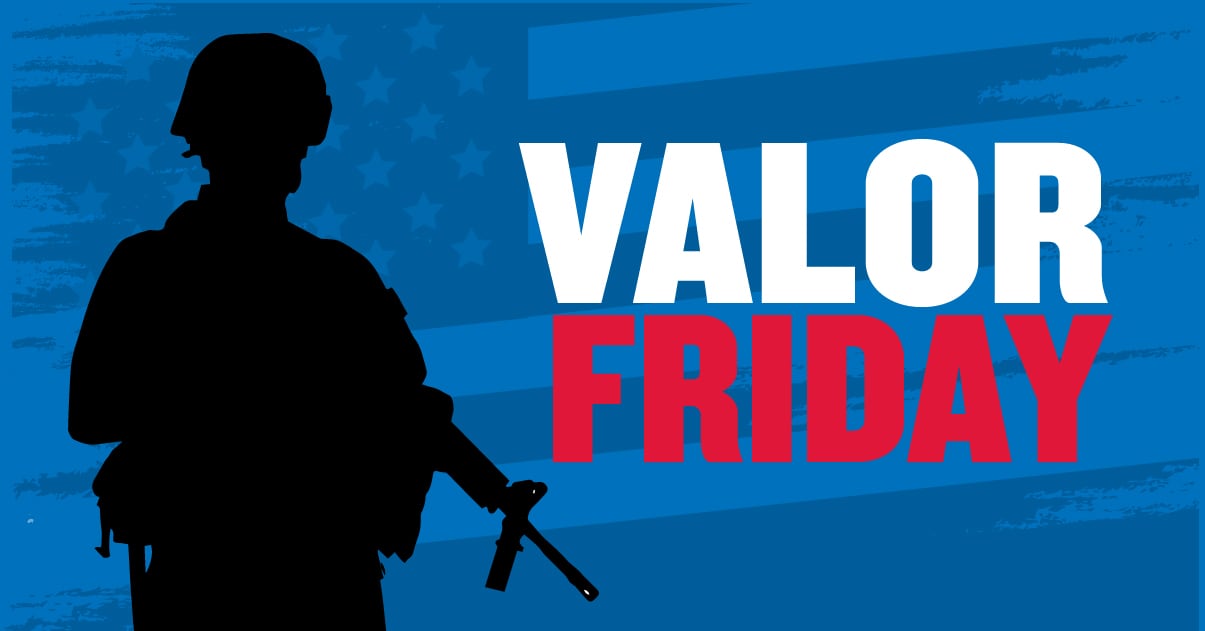The situation was looking grim when a team of 30 U.S. Army Special Forces and Afghan commandos found themselves surrounded in a Taliban-sympathizing village in Afghanistan’s Herat province on Oct. 5, 2009.
The team, which was tasked with targeting a Taliban commander, began taking small arms and sniper fire as enemy fighters closed in on nearby rooftops, some only 10 feet away. A four-hour firefight ensued.
Amidst the fury, the team’s sole joint terminal attack controller, then-Staff Sgt. Robert Gutierrez, Jr., an Air Force Special Operations Command combat controller, was shot in the left shoulder by an armor-piercing round. Gutierrez returned fire and killed the insurgent before collapsing and calling for a medic.

A sucking chest wound rapidly filled Gutierrez’s lungs with blood, collapsing his lung. Unable to breathe or speak, he remained on the ground as a medic jammed a needle and decompression tube into his chest to relieve the pressure.
The round tore through Gutierrez’s shoulder, triceps, chest and lateral muscles, breaking two ribs and a scapula, and leaving a softball-sized hole in his back. With time being of the essence, medics ordered Gutierrez to remove his body armor to treat the rest of his wounds. Gutierrez refused, recognizing that doing so would also remove the radio he needed to coordinate air support.
“I’ve seen those types of injuries before and time isn’t your friend,” Gutierrez said in an Air Force press release announcing his receipt of the Air Force Cross, the service’s second highest award for valor behind the Medal of Honor. “I thought — I have three minutes before I’m going to die. I’ve got to do something big. Based on that time frame, I’m going to change the world in three minutes.”
“Something big” came in the form of coordinating three danger close strafing runs with an A-10 Thunderbolt II pilot and calling in airstrikes from nearby F-16 Fighting Falcons, critical firepower that afforded the seriously wounded JTAC and others the opportunity to escape.
“Combat controllers are the air-to-ground interface, bringing the firepower and communications links to the ground force commander,” Gutierrez said. “We bring an extraordinary amount of firepower in a small package (that is) able to shoot, move and communicate at the same time.”
Despite losing five pints of blood and having to walk over a mile to an evacuation zone, Gutierrez remained on the hooks, coordinating the strikes along with his own medevac. His focus remained so precise that the A-10 pilot communicating with him couldn’t even tell he was wounded.
“I realized he was shot after the third (and final) strafe pass,” then-Capt. Ethan Sabin, who was assigned to the 354th Expeditionary Fighter Squadron, said in the release. “He said he would be off of the ‘mic’ for a few to handle his gunshot wounds. Until that point he was calm, cool and collected.”
RELATED

To top off the laundry list of injuries he sustained, the strafing runs of the A-10 ruptured both of Gutierrez’s eardrums. He also endured multiple blood infections that required three chest tubes, three blood transfusions and seven surgeries.
“There is no doubt his heroic action under extremely dangerous circumstances and despite being wounded, saved the lives of his teammates,” then-Lt. Gen. Eric Fiel, the AFSOC commander, said. “His courage and character is unsurpassed. While I know he is a humble person that does not seek the spotlight, he is so deserving of the Air Force Cross. His actions are just a snapshot of what AFSOC Airmen are doing everyday in our current theater of operations.”
Gutierrez became just the second living recipient of the Air Force Cross in 2011, and cases have since been made to upgrade the award to the Medal of Honor. Now-Master Sgt. Gutierrez doesn’t concern himself with matters surrounding his award, however.
“I’m more thankful to be alive actually than anything else,” he told reporters last month at the Pentagon.
There has been only one airman approved for the Medal of Honor since the Vietnam War, and that determination came earlier this year.
Technical Sgt. John Chapman, a combat controller who was killed during 2002′s Battle of Roberts Ridge in Afghanistan, will be posthumously awarded the Medal of Honor by President Donald Trump during a White House ceremony on Aug. 22.
J.D. Simkins is the executive editor of Military Times and Defense News, and a Marine Corps veteran of the Iraq War.





